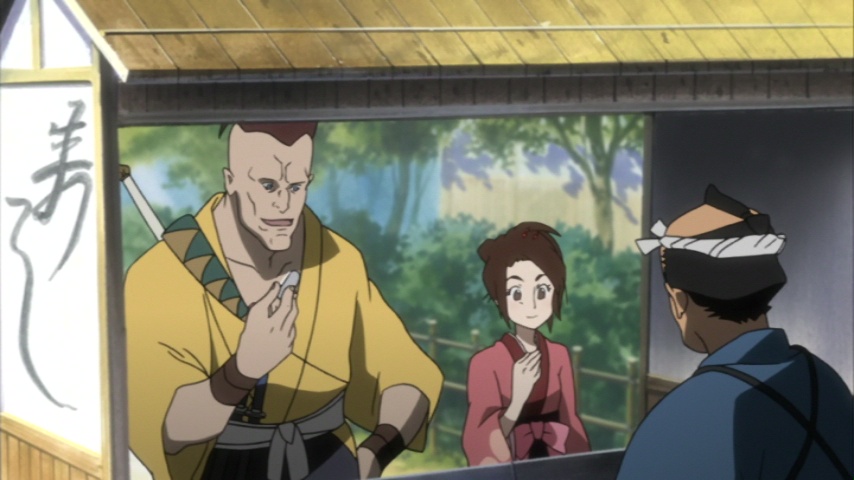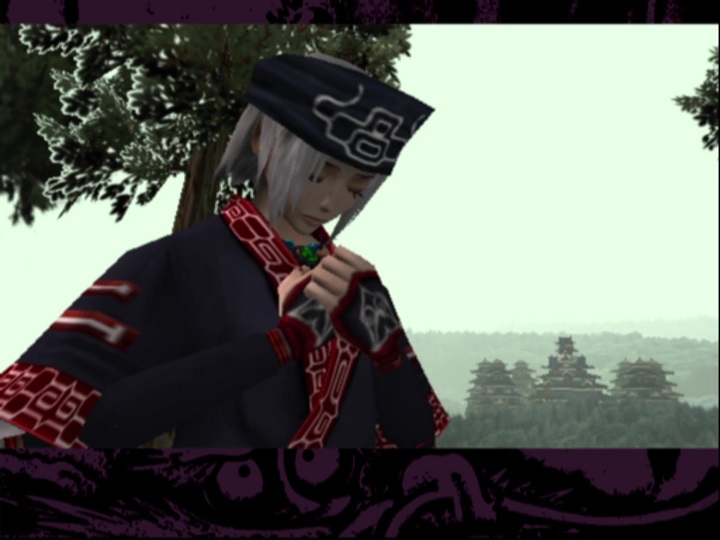
Not only, in this regard, a text amenable to the far right, Sidetracked directly challenges the cosmopolitan open-mindedness of the source material. For comparison, the sixth episode of Samurai Champloo, “The Red-haired Foreigner: Stranger Searching,” also features a red-haired, blue-eyed queer European with a goofy accent. While the European is mostly a comedic figure, the writer, Obara Shinji, is firmly sympathetic to him: Isaac is unjustly persecuted only for being foreign; he harms no one; Mugen, Jin, and Fuu side with him; and here it is tragic that his homeland, Holland, rejects queer identities, whereas why anyone would reject Antonioni is obvious.
Sidetracked also calls into question the countercultural values Kamui expresses in The Silver Case, where Tokio-Kamui seems perfectly accepting of queerness and Kusabi is apparently gay, as well as the respect Ooka affords Meru in The 25th Ward. Have I misjudged these games after all?
***
Authorial intent is not a major consideration for me. However, most notable for this analysis is that Sidetracked shows Suda and Ooka are, to some degree, conscious of Ainu cosmology. They understand kamuy as ubiquitous spiritual beings inhabiting animals, people, and objects and know about kamuy sending-away rituals. The creators’ awareness supports my reading of Uehara Kamui as a divine being temporarily wearing different human bodies in the same way a kamuy may reside in a hayokpe.
Sidetracked also offers a reading of Kamui as an oni. This suggests rich possibilities of interpretation and, with reference to the right myths and legends, could result in a broadly more consistent picture across all the video games discussed here. Reconsider Emir’s third eye, for instance, a feature he shares with some depictions of oni.
